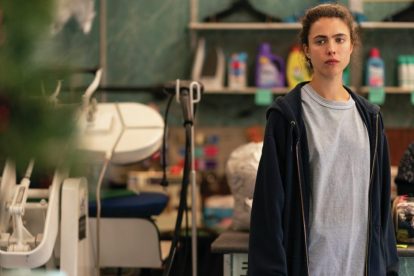Digital Edition
Social work
Netflix’s ‘Maid’ shows the catastrophe of U.S. family policies
Did you know that if you’re a poor and unemployed single mother, before you can get any financial assistance from the government you must have a job? On top of that, you can also get a government subsidy for your child care, but only after you have a job. So that beleaguered mother has to get a job, and hold it long enough to have a pay stub, without any child care help while she works.
When Alex Langley, the main character in the Netflix series Maid, hears all this from her social worker, she is stunned. “What kind of f—ery is that?” she says. And, frankly, I can’t think of a better word for it myself.
Over its 10 episodes, Maid tells Alex’s story in heartbreaking and agonizing detail, with occasional flashes of hope (often false) and humor (mostly dark). Played with startling depth and nuance by Margaret Qualley, Alex is a young woman who’s gotten her GED and is about to leave her coastal Washington home for college in Montana when she falls into a reckless affair that results in an unplanned pregnancy.
The child’s father, Sean, expects her to abort it, but she won’t. Instead, she moves into his singlewide trailer and takes up full-time motherhood with their child, Maddy, while Sean grows increasingly drunk and abusive. The series begins with Alex and Maddy making a middle-of-the-night escape that leads to the aforementioned social worker.
Maid is inspired by Stephanie Land’s best-selling memoir with the same title. Land, like her small screen counterpart, ended up working for a residential cleaning service, scrubbing rich people’s toilets and tile for poverty wages. Much is fictionalized in the series, starting with all the characters’ names. But the story stays true to Land’s unvarnished depiction of life as a client of the stingy state and an invisible servant of the heedless rich. Some of the series’ best moments come straight out of the book, such as Land’s descriptions of the homes she cleans and the strange but true private lives they reveal, or the clueless contempt of strangers waiting behind her at the grocery checkout while she returns items she can’t afford.


